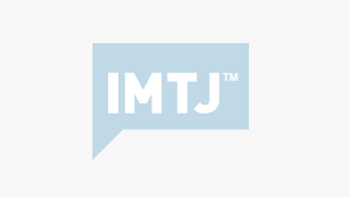There is healthy competition among hospitals, countries and agencies for medical tourism business. Agencies range from those who have business experience and a business plan, through to people who went abroad for treatment, thought they should offer the opportunity to others, and muddle along. Some who started off as amateurs have survived by becoming professional.
There is healthy competition among hospitals, countries and agencies for medical tourism business. Agencies range from those who have business experience and a business plan, through to people who went abroad for treatment, thought they should offer the opportunity to others, and muddle along. Some who started off as amateurs have survived by becoming professional. Others open, last a year or two and close due to lack of custom and profit. In essence, medical tourism agencies are like any of those businesses highlighted on television programmes-no two are the same. But like any other types of small business, prosperity is a tough ask, and like the thousands of people worldwide who open a hotel, shop or restaurant the basis of “ it seemed a nice thing to try “ only the best survive. Many small clinics are also new to medical tourism and need help to do well.
RevaHealth offers some suggestions on how to turn leads into business-
* When contacted by a potential new patient do not take the easy way out and send an automatic email reply or personalised follow up email. To sell to these new customers you have to pick up the phone and call them. If you rely on email alone to convert your patient enquiries into paying customers you are cutting your new business by 80%. It can be difficult to do it promptly, and it is time consuming, but when you realise how much value it can unlock, there is no question but that it has to be done.
* When you get an online enquiry the natural inclination is the reply to it immediately. Do not do this. Take your time read the customers’ requirement and research the right and call them.
* The process should be:
1. Send an automated response acknowledging receipt of the enquiry and letting the patient know when to expect a call.
2. Research their enquiry – potential treatment options, prices, length of treatment etc.
3. Call Them. If you do not get through leave a message and call them back. Never rely on email alone unless the customer has specifically asked not to be called.
4. Remember the time zones of where the patient is when you call them.
Julie Munro of the Medical Travel and Health Tourism Quality Alliance (MTQUA) also has advice for agencies, “Medical travel agencies can no longer get away with putting up a website, signing commission agreements with hospitals, maybe visiting a couple of them, and declaring themselves open for business. Medical tourism today has become a highly competitive, segmented and specialized industry. To create a new medical tourism business is more challenging than ever. What I advise newcomers to the industry is very different now compared with five years ago.”
Munro has some questions to help new and established medical tourism agencies to renew and reshape their business plans.
* Will you be a full-service medical travel agency, a health tourism agency, a broker or facilitator or an on-site international patient care management service?
* Will your market have a global reach? Regional? Will it be defined geographically or will it focus on special interests or needs of a specific clientele?
* How will you select the hospitals, clinics, treatment and spa facilities and other support service partners?
* Will you formally or informally partner with recovery resorts, travel agencies, clinics, hospitals, doctors, or other medical travel agencies?
*. Will you be a general service or specialize in one or more of orthopedics, spine, cardiac, cosmetic, dental, IVF, alternative treatments, anti-aging, sports wellness, pediatrics, women’s health, oncology?
* Will you select a hospital or clinic based on location or facilities?
* Will you judge a hospital by the recommendation of friends or colleagues, independent research reports, magazine or newspaper articles, website review, certification or accreditation credentials?
* What credentials are most important to you as an agency? Do you know how these credentials differ, and what each is best for: JCI, Trent, Accreditation Canada, ISQua, ISO, MTQUA, TEMOS?








 ©2024 All rights reserved LaingBuisson
©2024 All rights reserved LaingBuisson 


